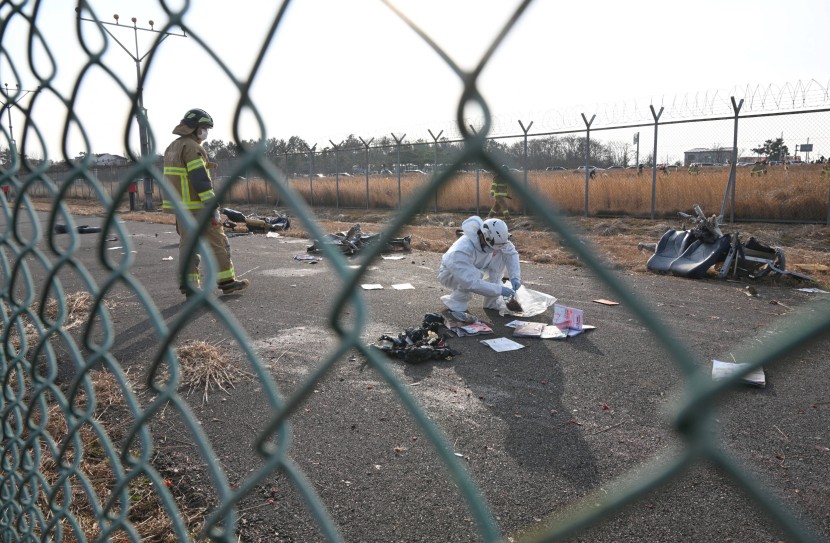
The death toll from South Korea's deadliest plane crash in decades rose to 179 on Monday, a day after the tragedy shook a nation already grappling with intense political turmoil.
The United States has dispatched investigators to assist in finding the cause of the Jeju Air crash, which occurred when the plane crash-landed at Muan Airport and collided with a concrete barrier on Sunday.
South Korean officials are working to process over 600 recovered body parts. So far, 141 victims have been identified, with the youngest passenger being just 3 years old and the oldest 78, the BBC reported.
The plane was carrying 181 people, with only two survivors—32-year-old Lee and 25-year-old Kwon, both flight attendants—rescued alive from the tail section of the burning aircraft.
South Korea's Transport Ministry announced Monday that it will conduct safety inspections of all 101 Boeing 737-800 jetliners operated by the nation's airlines, along with a comprehensive review of safety standards at Jeju Air, which operates 39 of these planes. Senior ministry official Joo Jong-wan confirmed that representatives from the U.S. National Transportation Safety Board and Boeing are expected to arrive in South Korea on Monday to assist with the investigation.
"The NTSB is leading a team of U.S. investigators (NTSB, Boeing and FAA) to assist the Republic of Korea's Aviation and Railway Accident Investigation Board (ARAIB) with their investigation of the Dec. 29 Jeju Air accident at Muan International Airport in Muan, Republic of Korea," the NTSB Newsroom account wrote on X.
Sunday's crash, South Korea's deadliest aviation disaster in decades, has sparked an outpouring of national grief and concern over the government's ability to manage the crisis. The tragedy comes as the country faces a leadership void following the recent impeachments of President Yoon Suk Yeol and Prime Minister Han Duck-soo. The political turmoil, fueled by Yoon's brief imposition of martial law earlier this month, has deepened public unease.
On Monday, acting President Choi Sang-mok led a task force meeting on the crash, directing authorities to conduct an emergency review of the nation's aircraft operation systems.








